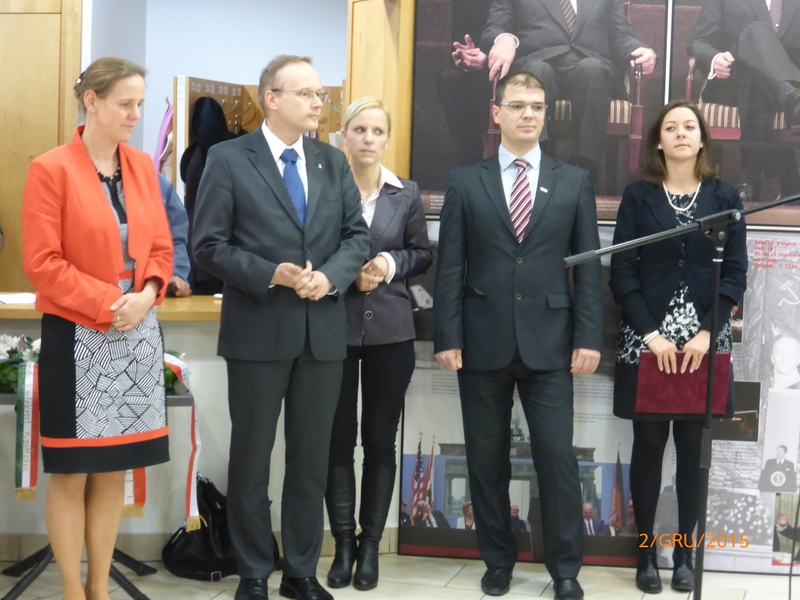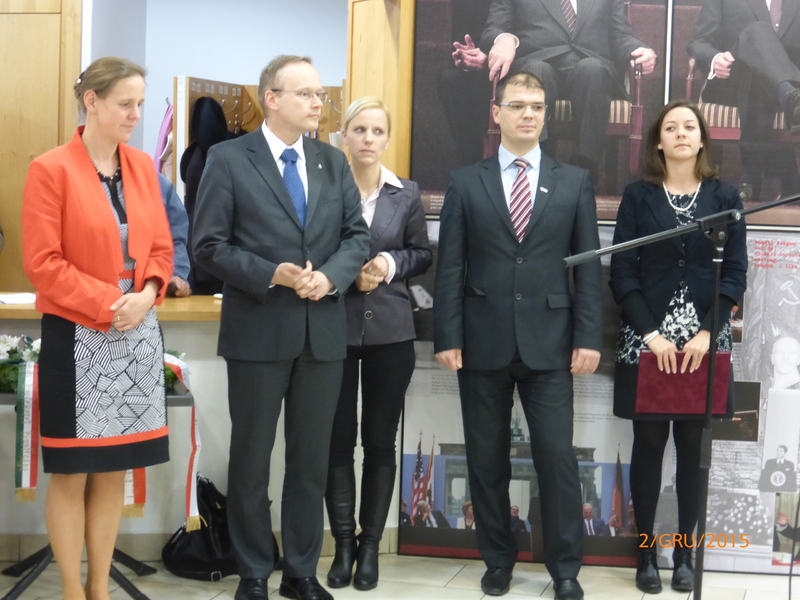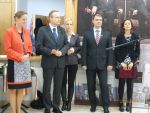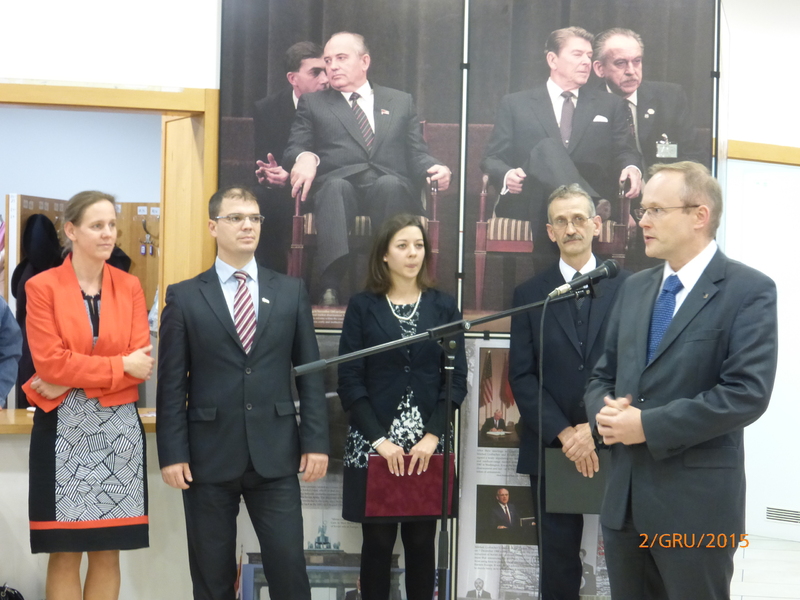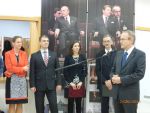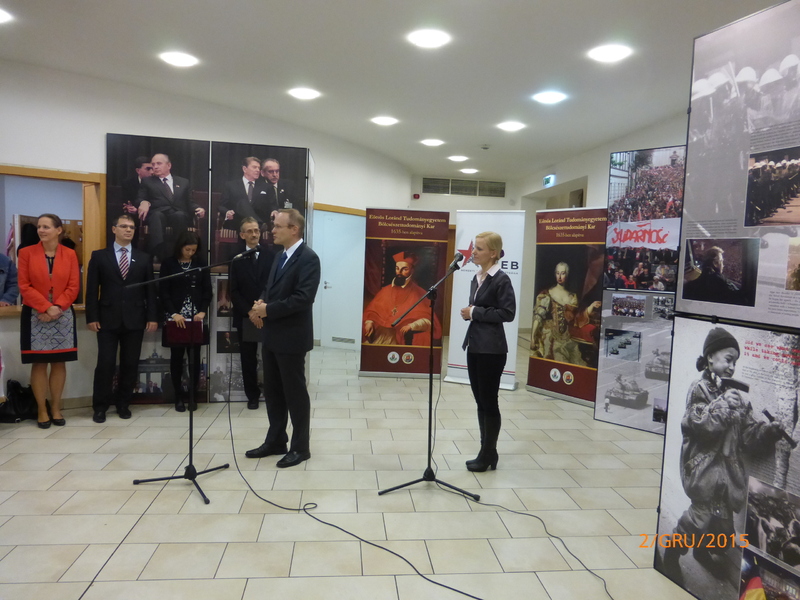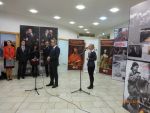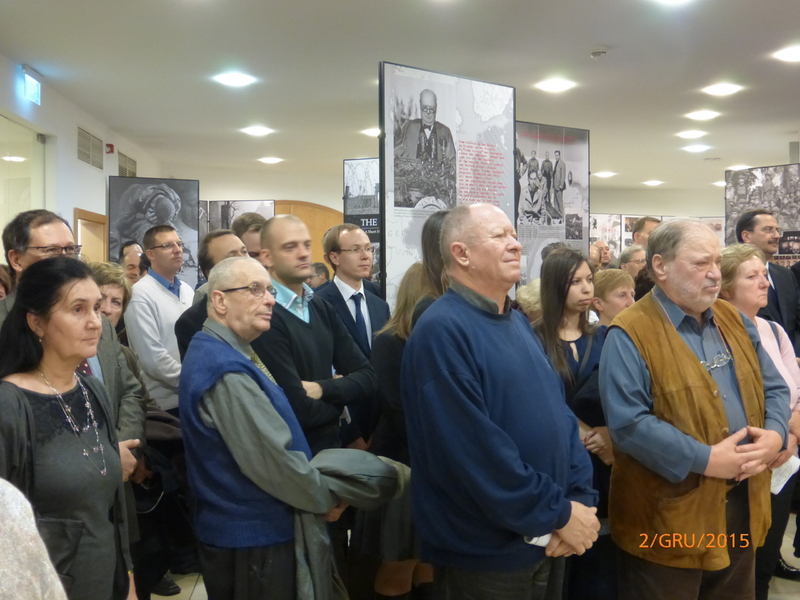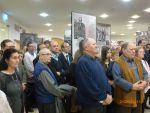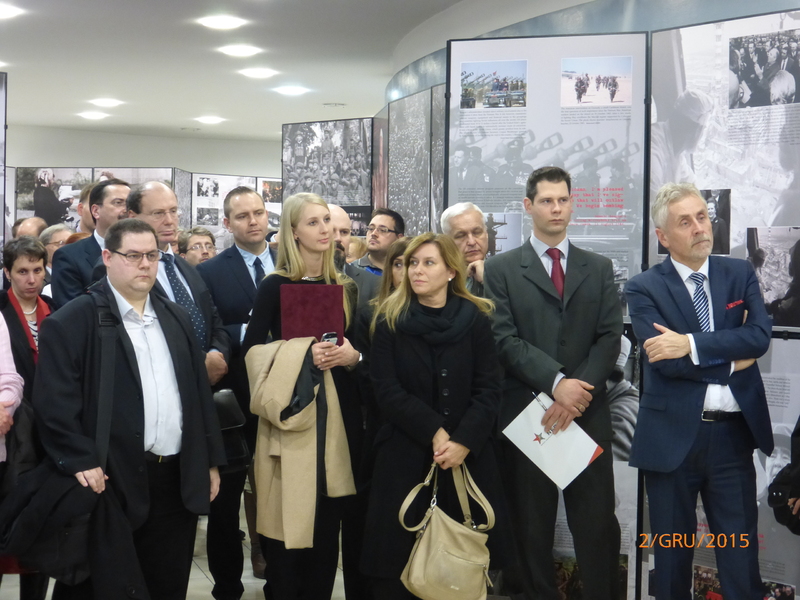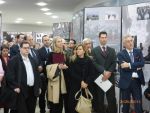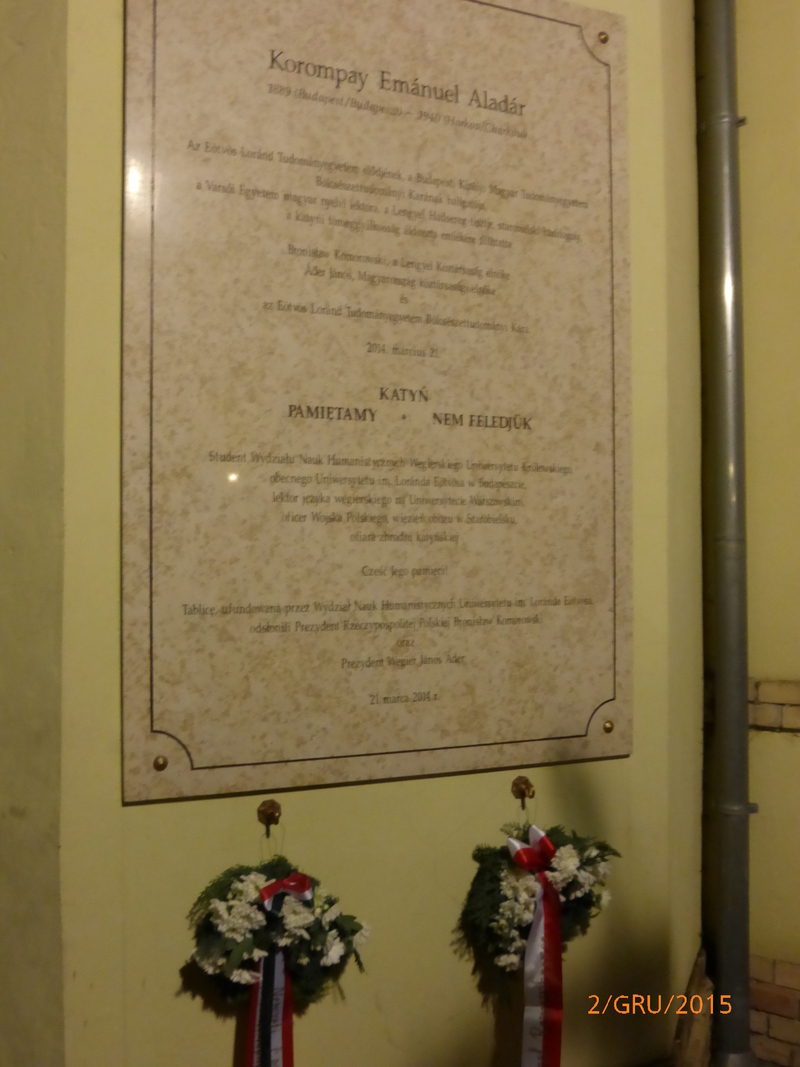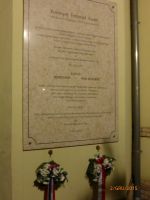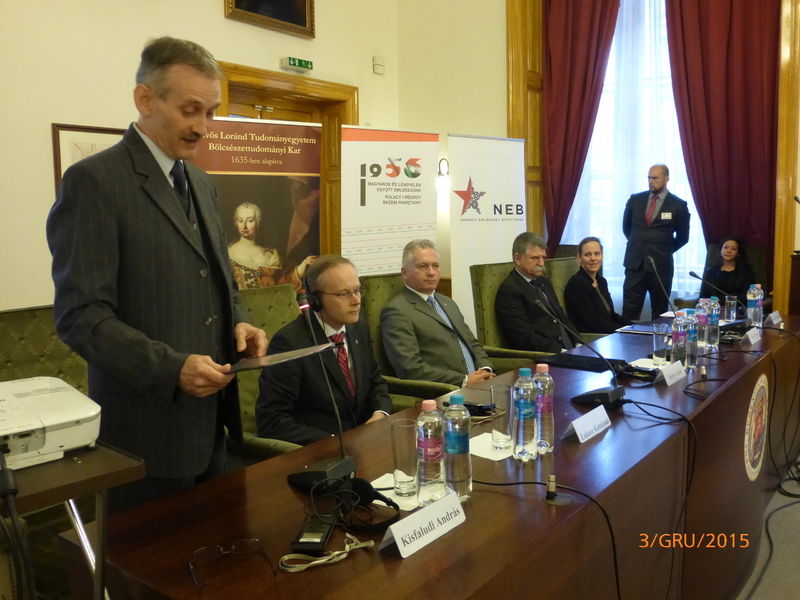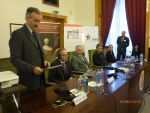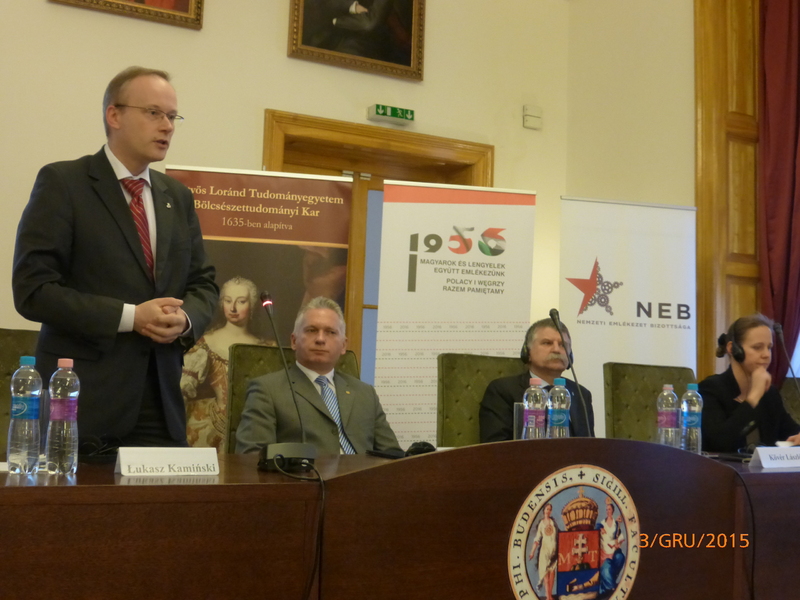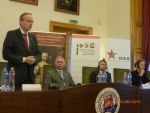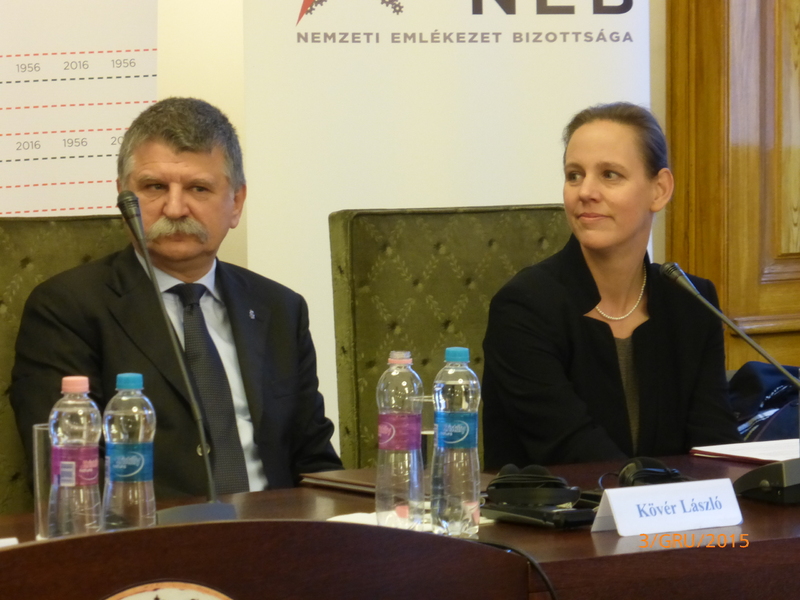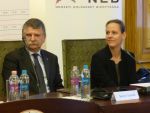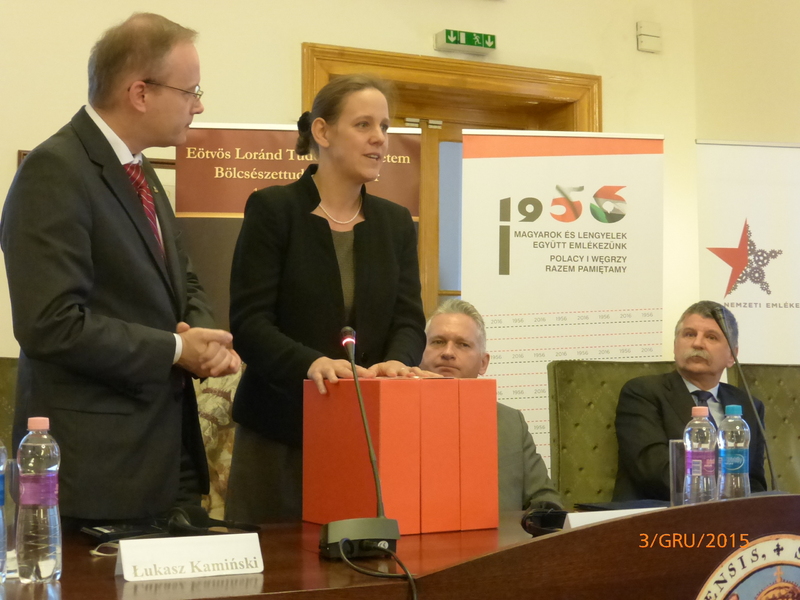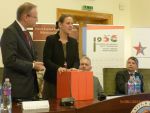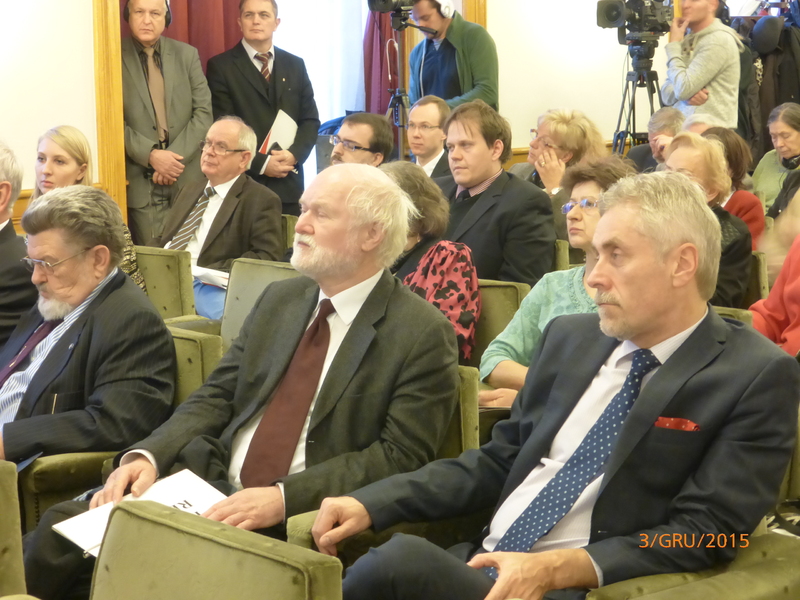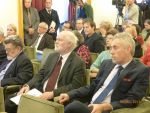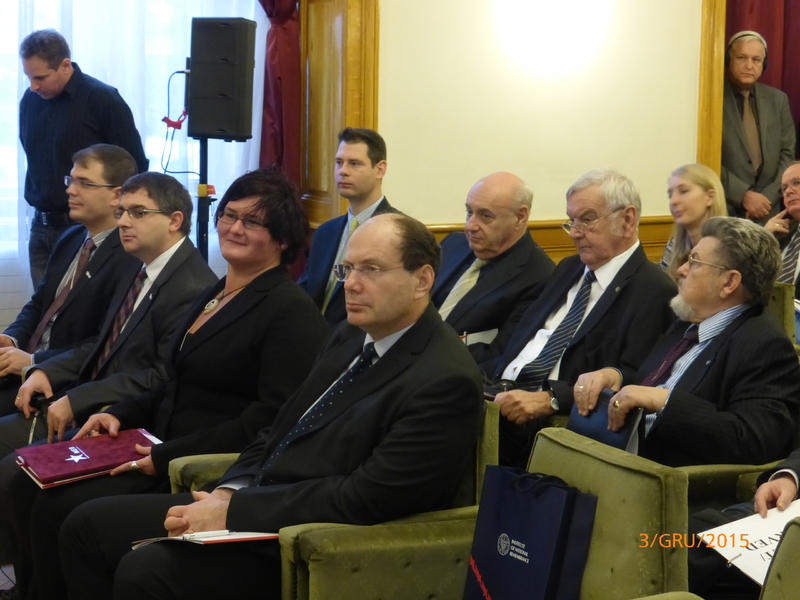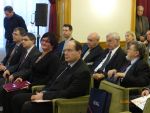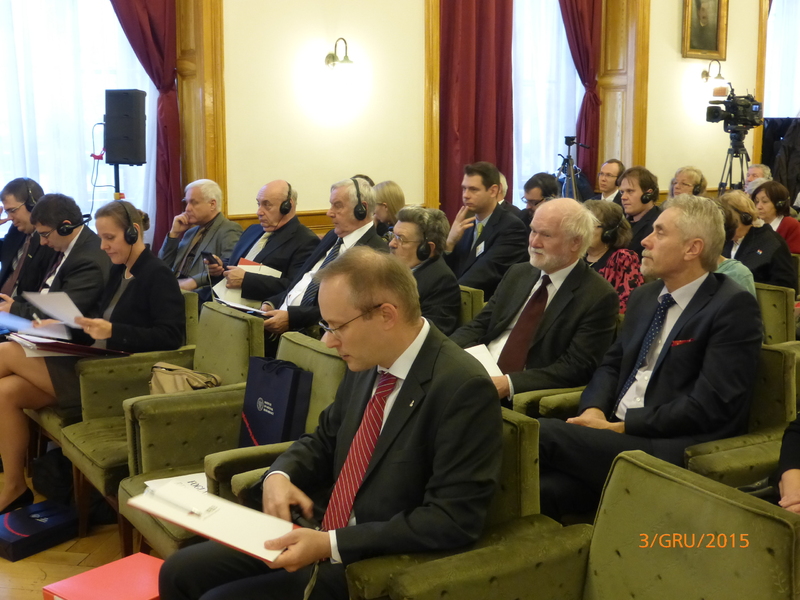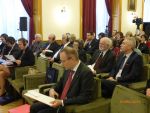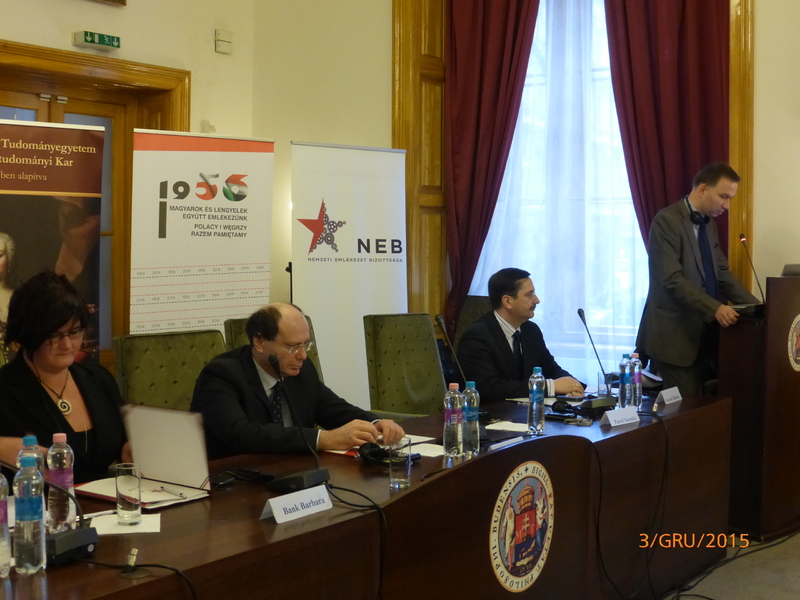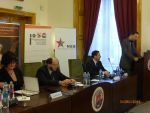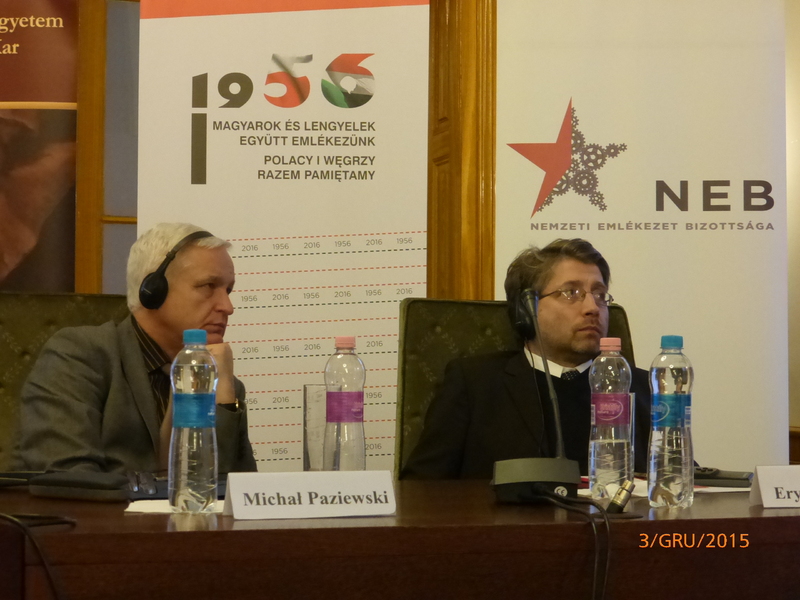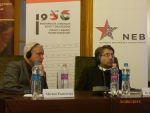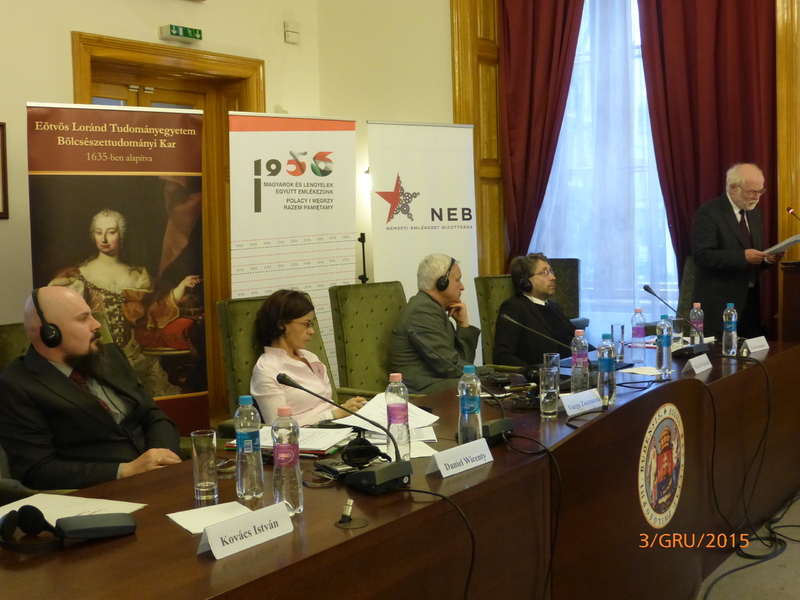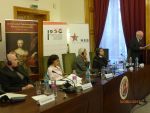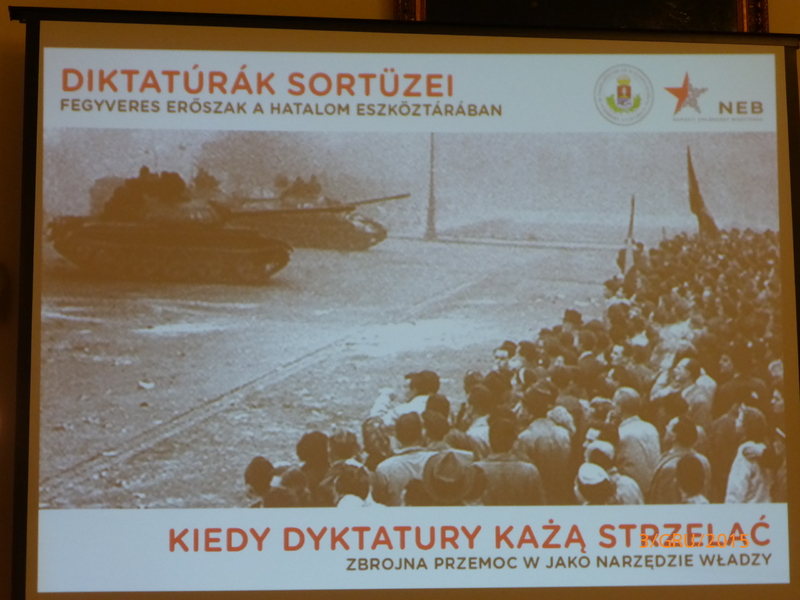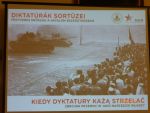On 2-3 December 2015 at the invitation of the Hungarian Committee of National Remembrance (Nemzeti Emlékezet Bizottság, NEB) delegation of Institute of National Remembrance headed by the President of IPN Dr. Łukasz Kamiński visited Budapest.
This visit was connected to the presentation of the IPN exhibition „Cold War. A short history of the divided world" at the Eötvös Loránd University (Eötvös Loránd Tudományegyetem) and the Polish-Hungarian scientific conference „When dictatorships order to shoot. Armed violence as a tool of power,” devoted to the issues of the use of force by the Communist authorities during the suppression of social revolts in the years 1956-1970/1971 in Poland and Hungary.
Presentation of the exhibition and the conference have been organized by the Institute of National Remembrance and the Hungarian Committee of National Remembrance. These events launched a number of educational, scientific and exhibition initiatives, planned for 2016 in connection with the 60th anniversary of the Hungarian Revolution and the Poznań June, carried out under the heading „The Poles and Hungarians - together we remember.”
During the conference, papers on the events in Poland were delivered by:
- Dr. Konrad Białecki (IPN Poznań) - „For freedom and bread." Poznań June 1956.
- Dr. Michał Paziewski (University of Szczecin) - The revolt of December `70 workers in Szczecin.
- Dr. Daniel Wicenty (IPN Gdańsk) – The 1970 protests in Poland and the problem of combating social memory.
- Dr. Eryk Krasucki (IPN Szczecin) - Authentic agreement or political masterpiece? Polish crisis of the early 1971.
- Dr. Paweł Sasanka (Institute of National Remembrance, Warsaw) - The struggle for power in the Communist Party during the socio-political crises in Communist Poland in 1956-1980.
The opening of the exhibition was accompanied by laying flowers at a plaque commemorating Emanuel Korompay located at the University. Korompay was a Hungarian university teacher, officer of the Polish Army, and prisoner of the Starobelsk camp murdered in Kharkov.
While in Budapest, President of the Institute of National Remembrance Dr. Łukasz Kamiński and Dr. Réka Földváryné Kiss, NEB Chairperson, met with László Kover, Speaker of the Hungarian Parliament, Dr. Bence Rétvári, Secretary of State in the Ministry of Human Resources and Dr. Zoltán Maruzsa, Ministerial Commissioner in the Ministry of Human Resources, responsible for higher education.
During the meetings both László Kövér and Minister Bence Rétvári underlined their full support for the work carried out by the Hungarian Committee of National Remembrance and the Institute of National Remembrance connected to joint commemoration of 1956 through educational work, exhibitions, publications and research. During the meeting possible cooperation between IPN and other Hungarian institutions was discussed. The cooperation would entail commemorating victims of Communist terror and a common history of Poles and Hungarians.
During the visit, Dr. Réka Földváryné Kiss handed to the President of the IPN copies of documents of the Office of the Mass Media of the Hungarian People's Republic, concerning the events of 1980-1982 in Poland.
